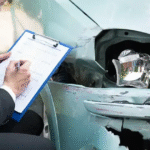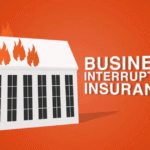Premises liability is a complex legal concept that holds property owners or occupiers responsible for accidents or injuries that occur on their premises due to their negligence or failure to maintain a safe environment. Whether you’ve been injured in a slip and fall accident, suffered from inadequate security, or sustained damages due to negligent maintenance, navigating the complexities of premises liability law can be a daunting task. However, with the guidance of an experienced premises liability lawyer, you can successfully seek the compensation you deserve and ensure your rights are protected.
Key Takeaways
- Premises liability is a legal concept that holds property owners responsible for accidents or injuries on their premises due to negligence or failure to maintain a safe environment.
- Property owners have a duty of care to ensure the safety of individuals who enter their property, whether they are invitees, licensees, or even trespassers.
- Common premises liability claims include slip and fall accidents, inadequate security, and negligent maintenance.
- Establishing liability in a premises liability case requires proving negligence and that the property owner failed to exercise reasonable care.
- Damages in a successful premises liability case can include medical expenses, lost wages, and pain and suffering.
Understanding Premises Liability
Premises liability is a critical legal concept that holds property owners or occupiers responsible for accidents or injuries that occur on their premises due to their negligence or failure to maintain a safe environment. This legal principle is based on the idea that property owners have a duty of care to ensure the safety of individuals who enter their property, whether they are invitees (individuals invited onto the property for business purposes), licensees (individuals granted permission to enter the property), or even trespassers.
What is Premises Liability?
Premises liability is a legal concept that holds property owners or occupiers responsible for accidents or injuries that occur on their premises due to their negligence or failure to maintain a safe environment. This legal principle is based on the idea that property owners have a duty of care to ensure the safety of individuals who enter their property, whether they are invitees, licensees, or even trespassers.
The Legal Concept Explained
The legal concept of premises liability is grounded in the notion that property owners or occupiers have a responsibility to exercise reasonable care in maintaining the safety of their premises, regardless of whether the property is used for business purposes or personal use. This duty of care extends to ensuring that the property is free from any foreseeable risks or dangerous conditions that could lead to injury or harm to those who enter the property.
Duty of Care for Property Owners
At the heart of premises liability is the duty of care that property owners or occupiers owe to individuals who enter their property. This duty of care requires property owners to take reasonable steps to maintain a safe environment and address any potential hazards that could pose a risk to the safety of their invitees, licensees, and even trespassers. Failure to fulfill this duty of care can lead to legal liability if an accident or injury occurs on the property.
Common Premises Liability Claims
Premises liability claims can arise from a variety of accidents or incidents that occur on a property due to the property owner’s negligence or failure to maintain a safe environment. Some of the most common types of premises liability claims include:
Slip and Fall Accidents
Slip and fall accidents are one of the most prevalent premises liability claims. These incidents occur when an individual slips, trips, or falls on a hazardous condition on the property, such as a wet floor, uneven surface, or debris. Property owners have a responsibility to ensure that their premises are free from dangerous conditions that could lead to slip and fall injuries.
Inadequate Security
Premises liability claims can also arise from inadequate security measures on the property. If a property owner fails to provide reasonable security measures, such as proper lighting, functioning locks, or security personnel, and a criminal incident occurs that results in injury, the property owner may be held liable.
Negligent Maintenance
Another common type of premises liability claim is related to negligent maintenance of the property. If a property owner fails to address known hazards, such as broken stairs, faulty elevators, or crumbling sidewalks, and an individual is injured as a result, the property owner may be held responsible for the resulting damages.

These are just a few examples of the types of premises liability claims that can arise. The key factor in determining liability is whether the property owner failed to exercise reasonable care in maintaining a safe environment for individuals on the property, whether they were invited guests, licensees, or even trespassers.
Parties Involved in Premises Liability
Premises liability cases typically involve three main parties: the property owner or occupier, the individual who was injured, and the legal status of that individual on the property. Understanding the roles and responsibilities of each party is crucial in determining liability.
Invitees, Licensees, and Trespassers
The legal status of the individual who was injured on the property can have a significant impact on the property owner’s duty of care. Invitees are individuals who are invited onto the property for business purposes, such as customers or clients. Licensees are individuals who are granted permission to enter the property, such as social guests. Trespassers are individuals who enter the property without the owner’s consent or authorization.
Property Owner Responsibilities
Property owners or occupiers have a duty of care to ensure the safety of individuals who enter their property, whether they are invitees, licensees, or even trespassers. This duty of care requires property owners to exercise reasonable care in maintaining a safe environment and addressing any foreseeable risks or hazards. Property owners must take proactive steps to maintain their premises, address any dangerous conditions promptly, and implement appropriate safety measures to protect all individuals who may enter the property.

Premises Liability
To establish premises liability and hold a property owner accountable for an injury that occurred on their property, several key elements must be proven. These include establishing liability, proving negligence, and demonstrating foreseeable risks.
Establishing Liability
Premises liability hinges on establishing that the property owner or occupier owed a duty of care to the individual who was injured. This means showing that the property owner had a responsibility to maintain the premises in a reasonably safe condition and take appropriate measures to prevent hazardous situations. Demonstrating this duty of care is a crucial first step in a premises liability case.
Proving Negligence
Once the duty of care has been established, the next step is to prove that the property owner was negligent in fulfilling that duty. This involves showing that the owner failed to exercise reasonable care in maintaining the premises, resulting in the unsafe condition that led to the plaintiff’s injury. Evidence of negligence may include a failure to address known hazards, inadequate maintenance, or a general disregard for the safety of those on the property.
Foreseeable Risks
Premises liability also requires demonstrating that the property owner should have reasonably foreseen the risk of harm that ultimately resulted in the plaintiff’s injury. This means proving that the unsafe condition or hazard on the property was foreseeable and that the owner failed to take appropriate steps to mitigate that risk. Establishing the foreseeability of the risk is a crucial element in holding the property owner liable for the resulting injury.

| Key Element | Description |
|---|---|
| Establishing Liability | Demonstrating that the property owner owed a duty of care to the injured individual |
| Proving Negligence | Showing that the property owner failed to exercise reasonable care in maintaining the premises |
| Foreseeable Risks | Proving that the unsafe condition or hazard was foreseeable and the owner failed to mitigate the risk |
Damages in Premises Liability Cases
In a successful premises liability case, the plaintiff (the individual who was injured) may be entitled to recover various types of damages. These damages are intended to compensate the plaintiff for the injuries and losses they have suffered as a result of the property owner’s negligence. The main categories of damages in premises liability cases include:
Medical Expenses
The plaintiff may be able to recover compensation for their past and future medical expenses related to the injuries sustained on the premises. This can include the cost of hospitalization, surgeries, rehabilitation, therapy, and any other necessary medical treatment.
Lost Wages
If the plaintiff’s injuries have resulted in lost or reduced income, they may be able to recover compensation for their lost wages, as well as any future lost earning capacity. This can be especially important in cases where the plaintiff has sustained severe or long-term injuries that impact their ability to work.
Pain and Suffering
In addition to the economic damages, the plaintiff may also be able to recover compensation for the physical and emotional pain and suffering they have endured due to their injuries. This can include compensation for physical pain, emotional distress, loss of enjoyment of life, and any other non-economic damages.
| Damage Type | Description | Example |
|---|---|---|
| Medical Expenses | Compensation for past and future medical costs related to the injuries | Hospital bills, surgery costs, rehabilitation expenses |
| Lost Wages | Compensation for lost or reduced income due to the injuries | Lost earnings, reduced earning capacity |
| Pain and Suffering | Compensation for physical and emotional distress caused by the injuries | Physical pain, emotional trauma, loss of enjoyment of life |
By pursuing these types of damages, plaintiffs in premises liability cases can seek the compensation they deserve for the injuries and damages they have sustained as a result of the property owner’s negligence.

Navigating the Legal Process
Navigating the legal process for a premises liability claim can be complex, but with the guidance of an experienced premises liability lawyer, you can successfully pursue the compensation you deserve. The key steps in the legal process include:
Gathering Evidence
The first critical step in a premises liability case is to thoroughly gather evidence that supports your claim. This may involve collecting photographs of the hazardous condition that led to your injury, obtaining witness statements, and securing any relevant surveillance footage or maintenance records from the property owner.
Filing a Claim
Once you have gathered the necessary evidence, you will need to file a personal injury claim against the property owner or occupier. This process typically involves submitting a detailed written claim to the property owner’s insurance company, outlining the incident, your injuries, and the damages you have suffered.
Also Read : Inspiring Lawyer Quotes: Wisdom from the Legal World
Statute of Limitations
It’s important to be mindful of the statute of limitations for premises liability claims in your state, as this sets a time limit on how long you have to take legal action. Failure to file your claim within the designated timeframe could result in the loss of your right to pursue compensation. Consulting with a premises liability lawyer can help ensure you meet all deadlines and filing requirements.

The Role of a Premises Liability Attorney
Navigating the complexities of a premises liability case can be challenging, which is why it is often advisable to work with an experienced premises liability attorney. These legal professionals can play a crucial role in the success of your claim by:
Investigating the Incident
A skilled premises liability attorney will thoroughly investigate the incident that led to your injury, gathering evidence and interviewing witnesses to build a strong foundation for your case. They will work diligently to uncover the facts and identify the key factors that contributed to the unsafe conditions on the property.
Building a Strong Case
With their in-depth understanding of premises liability law, your attorney will be able to effectively analyze the evidence and develop a compelling legal strategy to demonstrate the property owner’s negligence or failure to maintain a safe environment. They will work closely with you to ensure that your case is presented in the strongest possible light.
Negotiating Fair Compensation
Once the case is built, your premises liability attorney will take the lead in negotiating with the property owner’s legal team to secure the fair and just compensation you deserve for your injuries and damages. They will leverage their experience and negotiation skills to advocate for your best interests and ensure that you receive the compensation you need to cover your medical expenses, lost wages, and other associated costs.
By partnering with an experienced premises liability attorney, you can navigate the complexities of your case with the guidance of a skilled and trusted partner in seeking justice. They will work diligently to protect your rights and help you obtain the compensation you deserve for the harm you have suffered on someone else’s property.
Preventing Premises Liability Incidents
As property owners or occupiers, maintaining a safe premises is a crucial responsibility to prevent premises liability incidents. By addressing hazards promptly and implementing safety measures, property owners can uphold their duty of care and exercise reasonable care to ensure the safety of all individuals on their property.
Maintaining Safe Premises
Regularly inspecting the property and promptly addressing any unsafe conditions or potential hazards can significantly reduce the risk of accidents and injuries. This includes maintaining proper lighting, addressing slip and fall risks, and ensuring that the premises are free from dangerous conditions.
Addressing Hazards Promptly
When property owners become aware of any hazards or unsafe conditions on their premises, they have a legal responsibility to address them promptly. Failing to do so can lead to potential liability should an incident occur.
Implementing Safety Measures
Proactively implementing safety measures, such as signage, barriers, and regular maintenance, can help prevent premises liability incidents and demonstrate the property owner’s commitment to ensuring the safety of all individuals on the premises.
Conclusion
As you navigate the complexities of premises liability, it’s essential to have a trusted partner by your side. Understanding premises liability is crucial in ensuring you receive the compensation you deserve for any injuries or damages sustained on someone else’s property. This comprehensive guide has provided you with the necessary knowledge and tools to successfully pursue a personal injury claim and seek legal action against the responsible party.
Remember, premises liability is a multifaceted legal concept that requires careful consideration and attention to detail. By working closely with an experienced premises liability attorney, you can navigate the intricate legal process with confidence and ease, ensuring your rights are protected and your interests are fully represented.
As you take the next steps in your journey to seek compensation and achieve peace of mind, remain steadfast in your resolve and trust in the guidance of your trusted partner. With their expertise and your unwavering determination, you can overcome the challenges presented by premises liability and secure the justice you deserve.
FAQs
What is premises liability?
Premises liability is a legal concept that holds property owners or occupiers responsible for accidents or injuries that occur on their premises due to their negligence or failure to maintain a safe environment.
What are the common types of premises liability claims?
Some of the most common types of premises liability claims include slip and fall accidents, inadequate security, and negligent maintenance that leads to unsafe conditions on the property.
Who are the parties involved in a premises liability case?
Premises liability cases typically involve three main parties: the property owner or occupier, the individual who was injured, and the legal status of that individual on the property (invitee, licensee, or trespasser).
How is liability established in a premises liability case?
To establish premises liability, the plaintiff must prove that the property owner owed a duty of care, the owner breached that duty, the breach was the cause of the plaintiff’s injuries, and the plaintiff suffered damages as a result.
What types of damages can be recovered in a premises liability case?
The main categories of damages in premises liability cases include medical expenses, lost wages, and pain and suffering.
What is the role of a premises liability attorney?
A premises liability attorney can play a crucial role in the success of your claim by investigating the incident, building a strong case, and negotiating fair compensation on your behalf.
How can property owners prevent premises liability incidents?
Property owners can prevent premises liability incidents by maintaining safe premises, addressing hazards promptly, and implementing safety measures to protect the safety of individuals on their property.




